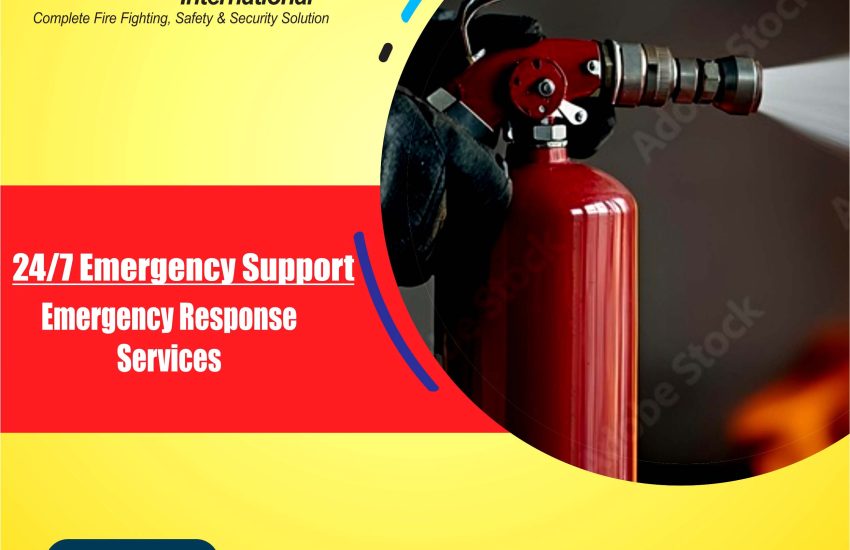Emergency Response Services are crucial in providing immediate help in life-threatening or urgent situations. These services are designed to manage emergencies, minimize damage, and save lives. Whether you’re dealing with medical emergencies, fire incidents, or natural disasters, emergency response teams act quickly to ensure safety and security. This detailed guide will delve into what emergency response services entail, the different types available, and the importance of preparedness.
What Are Emergency Response Services?
Emergency response services refer to a coordinated set of activities aimed at addressing incidents and emergencies that require urgent attention. These services are provided by trained professionals who work in various sectors, including healthcare, firefighting, law enforcement, and disaster management. They ensure that timely, effective assistance is available to those in need, thus minimizing the impact of emergencies on lives, property, and communities.
Types of Emergency Response Services
There are several types of emergency response services, each designed to address specific needs during different types of crises. The most common types include:
- Medical Emergency Response Services
- Ambulance Services: Ambulance services are typically the first responders in medical emergencies, providing transportation to hospitals, administering first aid, and delivering critical care during transport.
- Emergency Medical Technicians (EMTs): EMTs are trained professionals who provide basic life support (BLS) and advanced life support (ALS) services in emergencies.
- Emergency Medical Services (EMS): EMS teams are responsible for managing pre-hospital care and transporting patients to healthcare facilities.
- Fire Emergency Response Services
- Firefighting Teams: Firefighters are highly trained to handle fires in various environments, including buildings, forests, and industrial sites. They combat fires, rescue individuals, and prevent further damage.
- Fire Prevention Services: These services focus on reducing fire risks, conducting fire drills, and educating the public on fire safety.
- Law Enforcement Emergency Response
- Police Services: Law enforcement agencies are responsible for managing public safety during emergencies, such as violent crimes, accidents, and natural disasters. They also assist with crowd control and ensure law and order during emergency situations.
- Search and Rescue Operations: Police and specialized teams conduct search and rescue missions in disaster-stricken areas, such as collapsed buildings or flood zones.
- Natural Disaster Response Services
- Disaster Relief Organizations: These organizations provide aid during and after natural disasters, including food, shelter, and medical care. They also assist in rebuilding communities and offer long-term recovery solutions.
- Search and Rescue (SAR): SAR teams are often deployed during natural disasters to locate survivors and retrieve people from dangerous areas.
Importance of Emergency Response Services
Emergency response services are vital for a variety of reasons:
- Saving Lives: The primary goal of emergency services is to protect and preserve human life. Quick intervention can often make the difference between life and death.
- Minimizing Damage: Effective emergency response minimizes damage to property, the environment, and infrastructure, especially during natural disasters or accidents.
- Reducing Panic and Stress: Timely, coordinated responses help prevent chaos, ensuring that those affected are taken care of swiftly and efficiently.
- Improving Recovery Time: Rapid deployment of emergency services accelerates recovery, whether it’s medical treatment, fire damage containment, or disaster relief.
Emergency Response Service Process
The process of emergency response typically follows these key steps:
- Initial Call for Help: The first step is the reporting of the emergency, which usually occurs through a dedicated emergency number (like 911 in the U.S.). The dispatcher assesses the situation and determines the required response.
- Dispatch of Resources: Based on the emergency, appropriate teams (ambulance, police, firefighters, etc.) are dispatched. The response time is critical in ensuring effective assistance.
- Assessment and Action: Once the emergency response team arrives, they assess the situation, perform immediate interventions (e.g., first aid, firefighting), and take necessary actions (evacuations, rescues).
- Recovery and Rehabilitation: After the immediate crisis is managed, the recovery phase begins. This includes medical treatment, rebuilding efforts, and providing long-term support to those affected.
How to Prepare for Emergency Situations
While emergency response services are vital in times of crisis, preparedness can significantly enhance your safety. Here’s how you can prepare:
- Emergency Plans: Create a family or workplace emergency plan that outlines actions to take during various emergencies, such as fire, medical emergencies, or natural disasters.
- First Aid Kits: Keep a well-stocked first aid kit in your home, car, and workplace to provide initial care before professional services arrive.
- Stay Informed: Keep up with weather warnings, local news, and government updates to be aware of potential emergencies. Sign up for alerts from local authorities.
- Training and Education: Enroll in basic first aid and CPR courses to provide immediate assistance in emergencies. Educate family members or colleagues on the importance of emergency preparedness.
Conclusion
Emergency Response Services are an essential part of public safety. They ensure rapid and effective action during life-threatening situations, protecting individuals and communities from harm. By understanding the types of emergency response services, their importance, and how to prepare for them, you can be better equipped to handle emergencies when they arise. Whether you are in need of medical assistance, facing a fire, or dealing with a natural disaster, having the knowledge and resources to respond quickly can save lives and mitigate damage.


